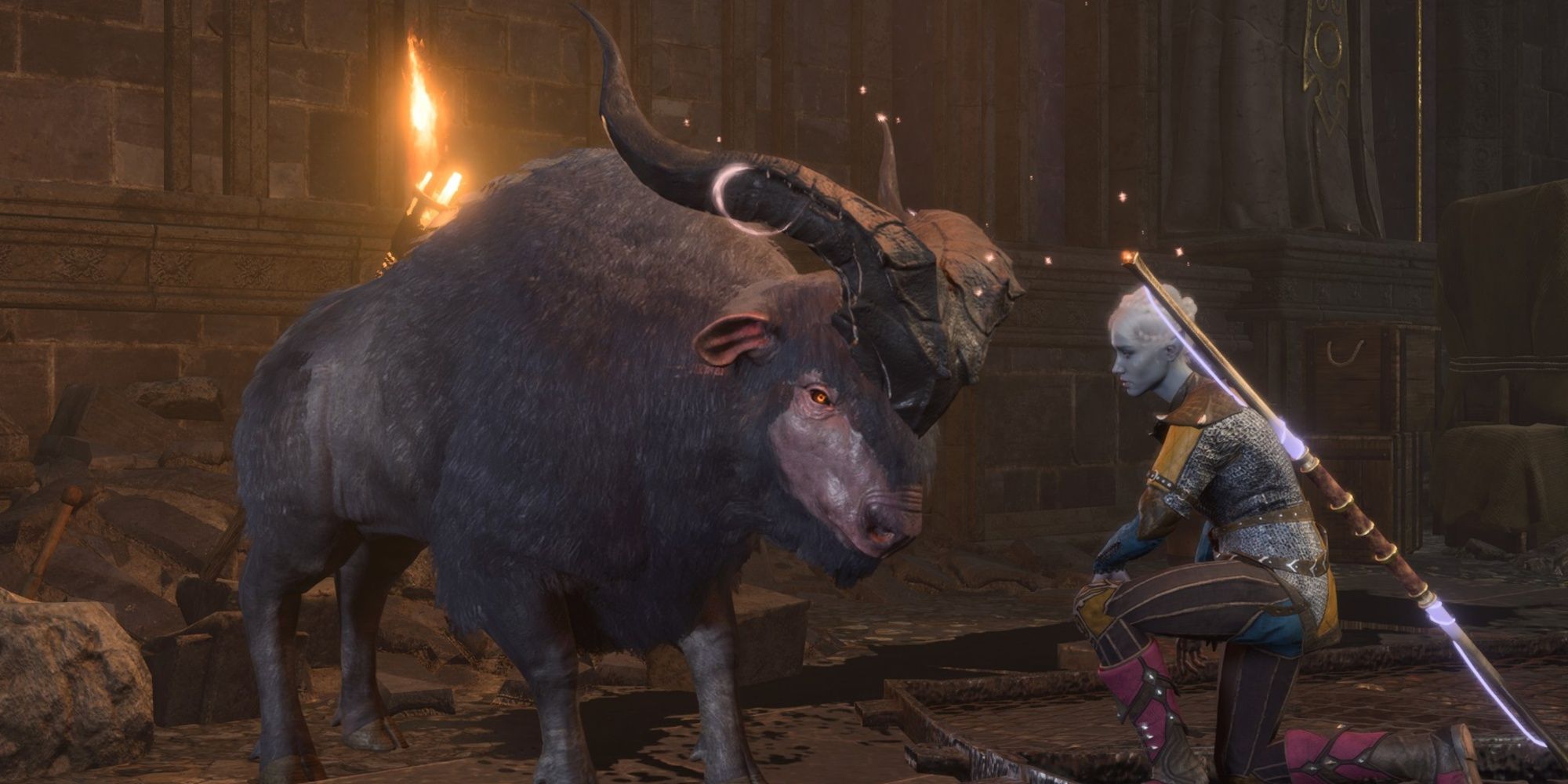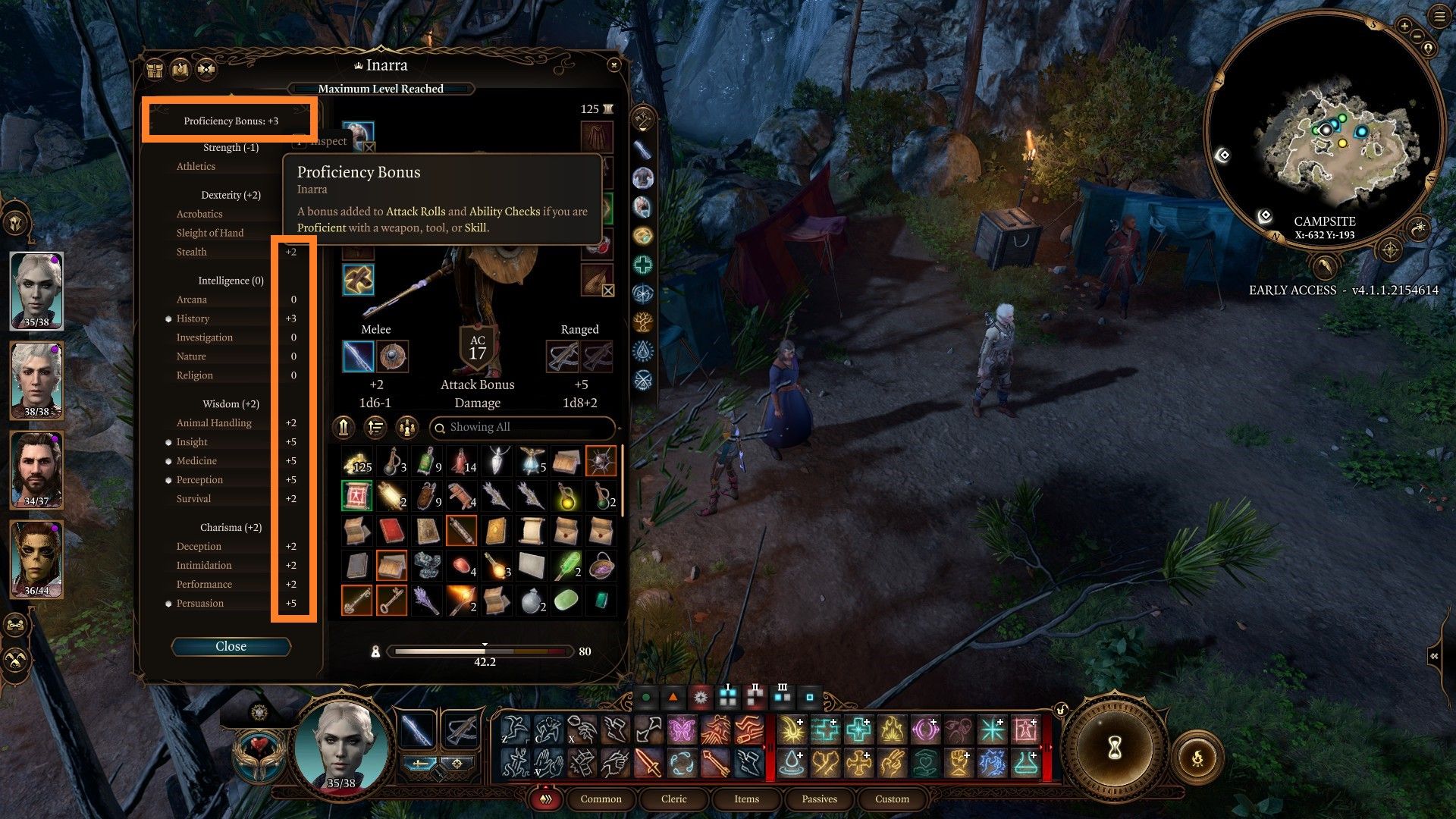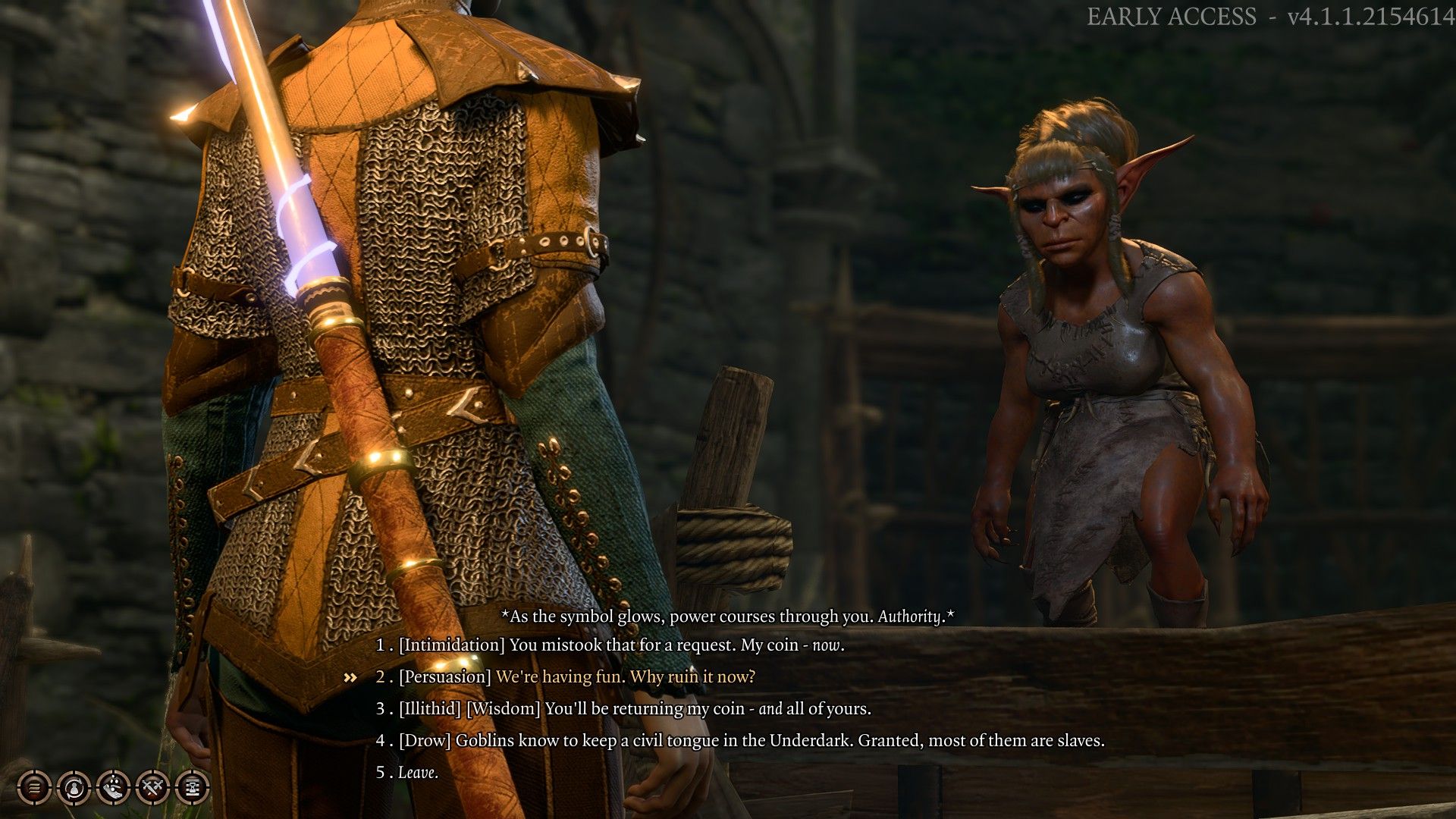Quick Links
Proficiency in Baldur's Gate 3 is an important factor to keep in mind when choosing a character's many features. From classes to races to backgrounds and more - your choices will affect your potential in dealing with the challenges to come, and your proficiencies bolster that potential.
Of course, there's always the element of luck when you make your rolls, but wouldn't you want to have every little bit of an edge? Knowing how proficiencies work and what they affect will help you make some of the most important choices on Day One and those you make along the way in your adventure.
What Is Proficiency?
When you are proficient in a particular task or with some item, you gain a special bonus called "Proficiency." This is automatically applied as a bonus to any rolls or checks you make with the skill that you are proficient in.
You can be proficient in:
- Skills (like Athletics or Acrobatics)
- Instruments (lutes, flutes, etc.)
- Languages
- Tools (Thieves' Tools, Artisan's tools, etc.)
- Saving Throws
- Weapons
- Armor
- Games
The score you get from being proficient with a task or item is called a "Proficiency Bonus."
A Proficiency Bonus is a static number that can only increase on specific level-ups. No matter what class or race you choose, a Proficiency Bonus will be the same across all characters at the same level.
Level | Proficiency Bonus | Level | Proficiency Bonus |
|---|---|---|---|
1 | +2 | 11 | +4 |
2 | +2 | 12 | +4 |
3 | +2 | 13 | +5 |
4 | +2 | 14 | +5 |
5 | +3 | 15 | +5 |
6 | +3 | 16 | +5 |
7 | +3 | 17 | +6 |
8 | +3 | 18 | +6 |
9 | +4 | 19 | +6 |
10 | +4 | 20 | +6 |
What Does Proficiency Affect, And Do I Need It?
Being proficient at something does not mean that you will always succeed in a task. Likewise, not being proficient at something does not mean you will fail.
Proficiency is simply a bonus you get that can aid in your chances of success, not guarantee them.
You'll receive penalties when attempting to wield or use types of equipment you're not proficient in, but you won't receive penalties when trying to complete unfamiliar tasks.
There is one exception to the "No Proficiency Doesn't Mean You Fail" rule: Languages. If you do not know a language, you will not be able to read it. Exceptions are only made with specific Religious or Historical contents and are few and far between.
How Do I Get Proficiency?
When you make a character for the first time, your class will give you two automatic proficiencies in saving throws, which are pre-determined by the class itself (you don't get to choose). If you want more saving throw proficiencies, you'll need to multiclass.
As for skills, you can become proficient in skills through:
- Items (Temporary-effect)
- Feats
- Classes
- Backgrounds
- Race
When you begin with character selection, most characters will get to choose a background for two skill proficiencies (and maybe a tool proficiency). Your race may also give proficiency in particular languages or skills (some even given weapon proficiencies).
Finally, classes typically give two-to-four skills, potential for tool and item proficiencies, and weapon and armor proficiencies.




